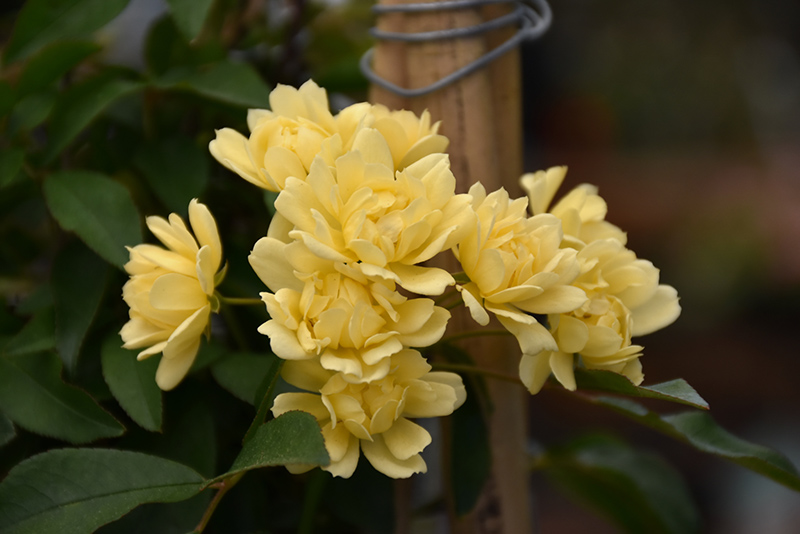>> Home
Height: 15 feet
Spread: 3 feet
Sunlight:
![]()
Hardiness Zone: 5a
Other Names: Lutea Banks Rose, Yellow Banksian Rose
Group/Class: Climbing Rose
Description:
A thornless climber that produces clusters of double yellow blooms in spring or early summer, depending on area; a stunning, lightly fragrant addition to the garden; perfect for garden walls and trellises; prune this variety after blooming
Ornamental Features
Lady Banks Rose features showy clusters of lightly-scented double yellow flowers along the branches from mid spring to early summer. The flowers are excellent for cutting. It has dark green deciduous foliage. The glossy oval compound leaves do not develop any appreciable fall color. The smooth brick red bark and burgundy branches add an interesting dimension to the landscape.
Landscape Attributes
Lady Banks Rose is a multi-stemmed deciduous woody vine with a twining and trailing habit of growth. Its average texture blends into the landscape, but can be balanced by one or two finer or coarser trees or shrubs for an effective composition.
This woody vine will require occasional maintenance and upkeep, and should only be pruned after flowering to avoid removing any of the current season's flowers. It is a good choice for attracting bees and butterflies to your yard. It has no significant negative characteristics.
Lady Banks Rose is recommended for the following landscape applications;
- Mass Planting
- Hedges/Screening
- General Garden Use
Planting & Growing
Lady Banks Rose will grow to be about 15 feet tall at maturity, with a spread of 3 feet. As a climbing rose, it can be leggy near the base and may be concealed by underplanting with lower-growing facer plants. It should be planted near a fence, trellis or other landscape structure where it can be trained to grow upwards on it, or allowed to trail off a retaining wall or slope. It grows at a fast rate, and under ideal conditions can be expected to live for approximately 30 years.
This woody vine should only be grown in full sunlight. It does best in average to evenly moist conditions, but will not tolerate standing water. It is not particular as to soil type or pH. It is highly tolerant of urban pollution and will even thrive in inner city environments. This is a selected variety of a species not originally from North America.
